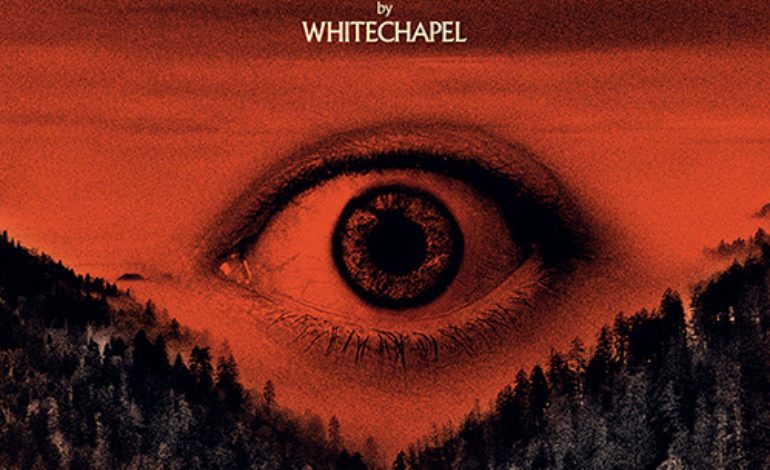

Different vibe, same trajectory for the band
Even being relatively new on the scene having formed in 2006, the American deathcore band Whitechapel have continued to make headway on the peak charts with each album. Knowing this, The Valley is likely to follow the same paths as the prior compositions.
On the cover art, it says that the album is based on true events, and listeners certainly feel the emotion pouring from the aggressiveness to the lyrics to the guitar riffs throughout. Lead vocalist, Phil Bozeman, revealed to metalblade that the album is “all about [him] as a child. It’s an interpretation of his mom’s struggles and her different personalities.”
Honestly, what stands out on the album is the contrast from the opening of the entire album to the last minute of the last track. In “Brimstone,” the opening title, listeners are immediately transported to the familiar heavy sound that the deathcore band is known for while “Doom Woods,” the final track, slows the tempo for the final instrumental minute.
In the last moments of the album, the soft strumming of the guitar echos, creating an alluring melody that will leave fans hypnotized and itching to click the replay album button. Even throughout the album, fans can find a contrast between the different style of vocals displayed. Ultimately, this contrast takes listeners on a journey that is meant to be felt in their bones.
As seen in their previous album, Whitechapel intermixes tracks of their standard screaming vocals with clear vocals. Although, out of 10 songs, only two in The Valley have non-screaming singing that is reminiscent of alternative rock. Since their creation in 2006, the band only started experimenting with songs that have distinct lyrics in Mark of the Blade, which was their last album to be released.
While that album was met with mostly positive reviews, one of the less positive ones felt that the clear vocals came out of nowhere and disrupted the flow. Now since fans had only been exposed to one side of Paul Bozeman’s voice, it’s understandable that the first time they changed things up would be met with hesitation.
With The Valley being the second album in which their experimenting with clear voices in both “Hickory Tree” and “Third Depth,” it isn’t as shocking as the first time. Intermixed throughout the album, the songs add to the overall whirlwind of emotions that come from reflecting on hard times of a mother in plight.
